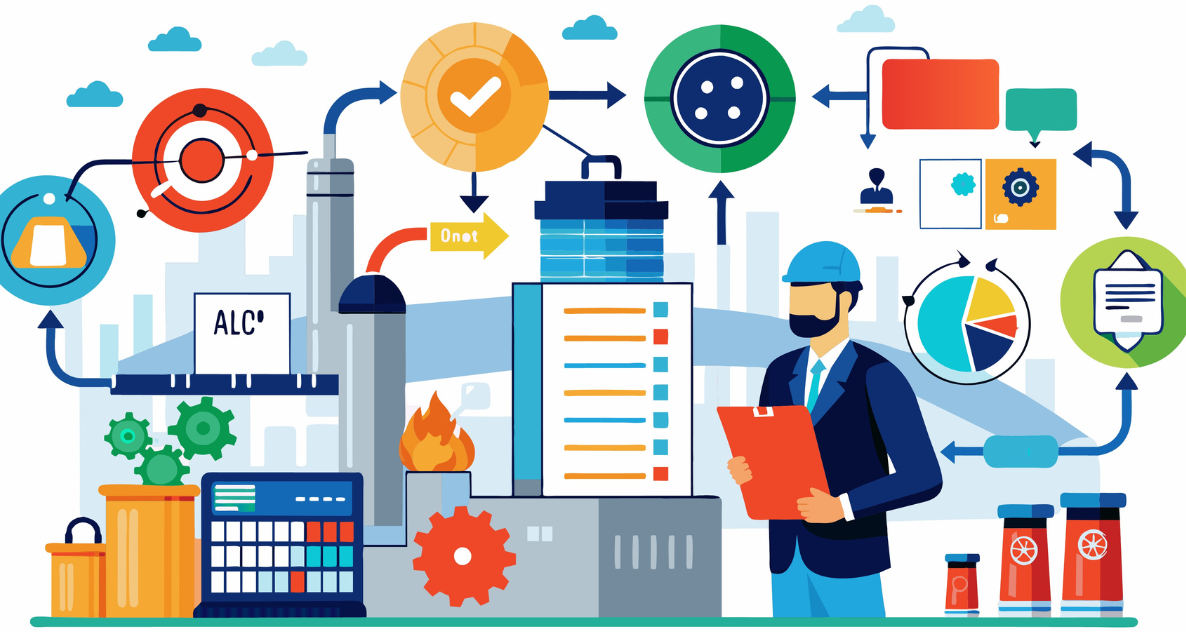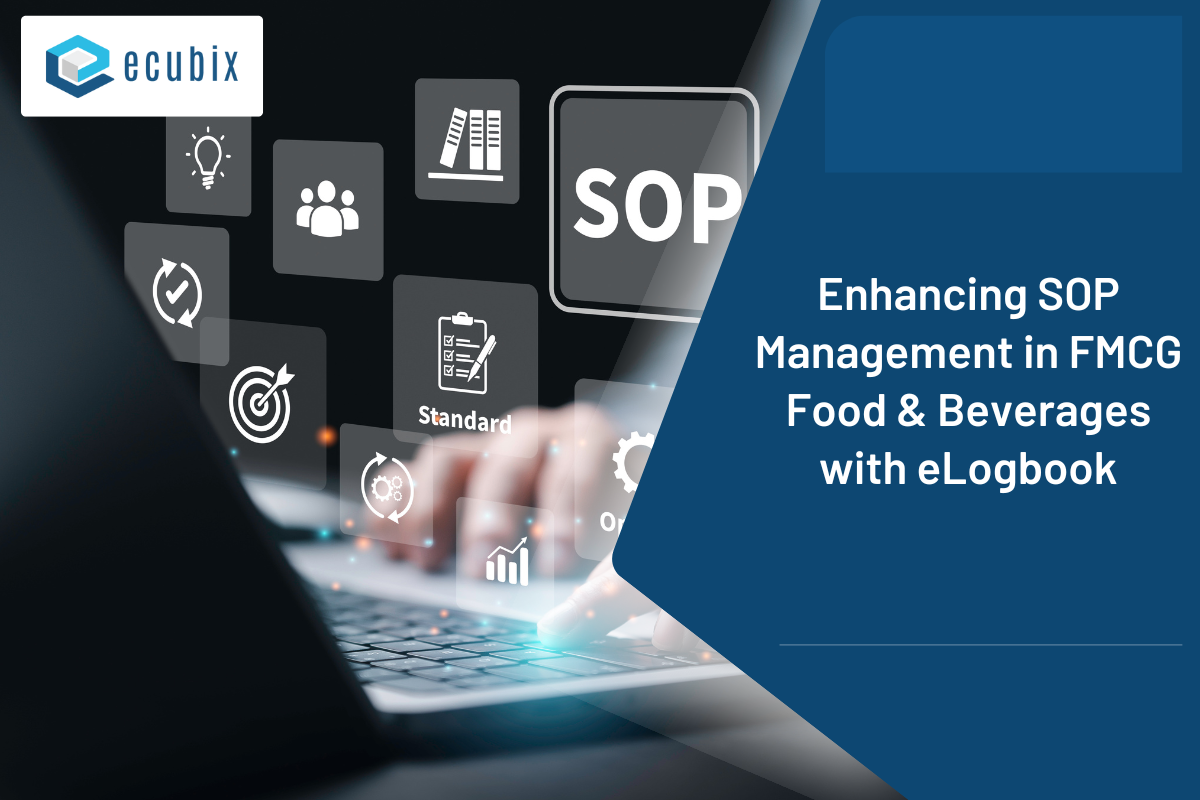
Table of Contents
Published on: August 8, 2024
In the ever-evolving landscape of the chemical industry, meticulous record-keeping is paramount to ensure safety, compliance, and efficiency. eLogbook, or electronic logbook, has emerged as a transformative tool in this context. Unlike traditional paper-based logbooks, which have been the cornerstone of documentation for decades, eLogbook offers a modern, digital solution for recording and managing data.
eLogbooks are digital platforms designed to replace traditional paper logbooks. They provide a streamlined, efficient method for capturing, storing, and retrieving data related to various processes and operations within the chemical industry. These electronic systems are integrated with other digital tools and databases, allowing for real-time data entry, automated alerts, and comprehensive data analysis. The significance of eLogbook in the chemical industry cannot be overstated. They enhance accuracy, ensure regulatory compliance, improve data security, and facilitate better decision-making by providing immediate access to critical information.
Despite their long-standing use, traditional paper-based logbooks present numerous challenges. These include the risk of data loss or damage due to physical deterioration or mishandling, the difficulty in searching and retrieving specific entries, and the time-consuming nature of manual data entry and verification. Additionally, paper logbooks are prone to human error, which can compromise data integrity and lead to significant operational and safety risks. The transition to eLogbook addresses these issues, providing a more reliable, efficient, and secure method for record-keeping in the chemical industry.
Advantages of eLogbook in the Chemical Industry
(1) Enhanced Data Integrity: One significant advantage of using eLogbook over traditional paper-based methods is that they eliminate the risks associated with human error and inaccuracies caused during data entry into physical documents. Through automated processes such as scanning barcodes and RFID tags, eLogbook ensures precise input of data at every stage of operations while minimizing room for mistakes commonly found in manual logging procedures. Additionally, since data entered into e-logs can be easily cross-referenced, verified, and validated electronically, it improves the reliability and consistency of information recorded therein. Moreover, automation saves time in reviewing entries, thereby increasing productivity and reducing the likelihood of errors occurring downstream in the process.
(2) Compliance Simplification: Another notable benefit of employing e-logbooks is the ease with which companies can maintain regulatory compliance. With digital storage solutions, companies no longer have to worry about losing important records or files when they get moved around physically; instead, everything stays secure within centralized databases accessible remotely anytime there’s an internet connection. Furthermore, the use of electronic signatures ensures accountability throughout each step of the process without requiring additional personnel to perform manual signatures. This makes it easier to satisfy auditors’ requirements for Good Manufacturing Practices (GMP), FDA regulation 21CFR Part 11 and other international/national guidelines governing pharmaceutical manufacturing practices. Thus, maintaining compliance becomes less burdensome and time-consuming for organizations adopting eLogbook technology.
(3) Regulatory Compliance: Using E-logs adheres to GMP norms set forth by agencies responsible for ensuring drug safety worldwide. These regulations require that manufacturers implement measures for controlling contamination and ensuring traceability throughout all stages of pharmaceutical production from raw materials to finished products. By implementing electronic systems that capture critical data accurately and consistently, organizations can meet stringent requirements mandated by authorities quickly and efficiently. It provides detailed audit trails and comprehensive records allowing seamless inspection and analysis should issues arise later. Overall, this increases transparency and builds trust among customers, regulators, and stakeholders alike.

Real-Time Use Cases in the Chemical Industry About eLogbook Usage:
eLogbook has proven useful in numerous areas within the chemical industry, ranging from batch record keeping, equipment maintenance, and process observation to tracking chemicals and shipping logistics. Below we outline some practical applications of eLogbook in action.
(1) Equipment Maintenance Records: In the chemical industry, equipment downtime costs both time and resources. Utilizing eLogbook allows operators to monitor machinery health status, schedule maintenance checks proactively based on usage patterns, store relevant records centrally, and track service history. For example, Shell uses eLogbook to keep track of maintenance schedules for thousands of pumps globally, helping them anticipate breakdowns before they occur, optimize asset utilization, reduce downtime, and increase productivity.
(2) Batch Record Management System: Keeping accurate batch records enables companies to track material movement, calculate batch sizes accurately, verify product specifications, maintain consistent quality levels, recall batches if necessary, and prepare regulatory filings promptly. Pfizer uses eLogbook effectively for tracking active pharmaceutical ingredients (APIs), monitoring transportation logistics, capturing packaging details, and documenting inspections conducted along the supply chain journey, facilitating effective quality assurance & control processes.
(3) Process Observation Logs: Documentation plays a crucial role in identifying opportunities for improvement in industrial processes. eLogbook enables continuous monitoring of plant operations, collecting valuable data regarding variations in temperature, pressure, flow rates, etc., directly contributing insights needed for adjustments, improvements, and preventative actions. Samsung Electronics employs eLogbook to observe temperature fluctuations in its semiconductor wafer fabrication facilities continuously, ensuring optimal environmental conditions essential for successful chip manufacture.
(4) Tracking Chemicals and Shipping Logistics: eLogbook helps track shipments of hazardous substances, maintaining compliance with regulatory bodies’ strict safety protocols. Bayer MaterialScience implemented eLogbook to create comprehensive shipping records, improving efficiency through better tracking and tracing of goods movements between factories and distribution centers globally.
Security and Data Protection in the Chemical Industry
Security and data protection remain top priorities for companies operating within the chemical industry. Protecting sensitive company data stored in eLogbook, along with complying with regulatory standards like EU Annex 11, ensures confidentiality, integrity, and availability of critical information.
Data Security Concerns and Solutions:
Access Control: Companies must define clear access controls for authorized users who interact with eLogbook daily. Password policies, multi-factor authentication (MFA), restricted IP ranges, user roles and privileges, and session timeouts protect against unauthorized access. Regular employee training is vital to reinforce awareness and commitment to protecting sensitive data.
Encryption: Utilizing strong encryption algorithms and techniques prevents unauthorized parties from accessing sensitive data stored in eLogbook. AES256 encryption and SSL/TLS encryption are widely used to safeguard data transmission via networks. Organizations must consider investing in cybersecurity tools capable of detecting threats and responding accordingly to mitigate potential vulnerabilities.
Backups and Recovery Plans: Establishing robust backup and recovery plans offers businesses continuity in case of system failures, natural disasters, cyberattacks, or other incidents affecting eLogbook accessibility. Businesses should regularly test backups and recovery strategies to confirm the effectiveness and update them according to evolving threat landscapes.
Compliance with EU Annex 11 Regulations:
EU Annex 11 pertains specifically to electronic signature systems intended for use in official business communications under Regulation (EC) No. 910/2008 on electronic signature services provided by certain public authorities and their agents acting outside their territory. Compliance requires eLogbook to support electronic signatures and provide sufficient audit trails detailing all transactions involving signed documents. Companies working with chemicals in the EU must prioritize ELog adoption and integrate it seamlessly with their existing IT infrastructure to facilitate legal compliance swiftly and effortlessly.
Conclusion:
In summary, eLogbook presents numerous advantages for the chemical industry, offering greater efficiency, accuracy, compliance, and flexibility compared to traditional paper-based logbooks. Digitizing records reduces the risk of errors resulting from manual transcriptions, creates seamless audit trails, simplifies reporting processes, integrates smoothly with current systems, and supports compliance efforts. Given the immense benefits offered by eLogbook, it is high time for chemical companies to embrace digital transformation actively. As technology advances, companies must continue evaluating innovative solutions to enhance operations continually and stay competitive amidst evolving market trends. Continuous improvement driven by the adoption of eLogbook will position chemical companies strategically for future success. Therefore, embracing change toward digital transformation remains paramount for progress in the chemical industry.



















